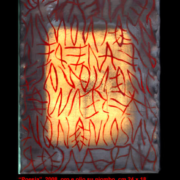“Is there the group?” About “complex” patients in the analytical experience
Abstract
The excessive rigidity of fondness (narcissism) and the absence of a thought ‘as if’ (capacity of symbolization) in psychotic patients, make it difficult for the analyst to build a therapeutic alliance and a relationship of transfert. In the early stages of the group, the sensoriality and the corporality, present in the field of group, might play a significant role in the starting of the therapeutic process. In fact, if the analyst in the groupor through the group, approaches the psychotic suffering, considering the dimensions of corporality and the sensoriality shown by the patients not as obstacles, but as availability referred to the particular moment (here and now), he has the opportunity of an access to a level of preverbal and proximate communication, unconscious and primitive, which is the only possible way for the patients to put themselves into relation with others. Is it possible to lay the foundation of a therapeutic relationship starting from the corporeal and sensorial form of relationship? If the answer is yes: how would this step take place? To what elements must the analyst refer to when working with the group in order to observe the double communicative register of the body and the senses on one hand and the internal dialogue which an analyst continuously tries to decode? To what right distance may all this take place? What value can the concept of presence assume here? What are the possible settings in which this may happen? What is the role which space and time acquire in the declination of these two dimensions in the group? What are the ‘trials’ which the analyst is supposed to meet? What function has the context enlarged and contiguous to the setting? What function has the institutional context? These are the most significant questions which we have put to ourselves during our eighteen months’ work as a small therapeutic group with analytical aims. The therapeutic possibilities we have found in our work have encouraged us to share this experience and to go on tracing some significant elements from which to leave and to take the way for a necessary reflection, being conscious that every analytical experience is unique and unrepeatable in itself, and such are the subjects who take part in it.


